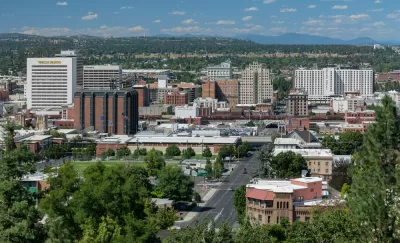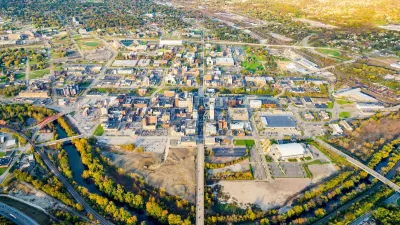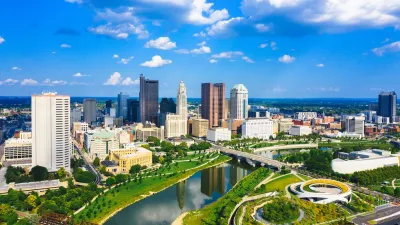Cities like Spokane, Washington courted new residents and businesses during the pandemic. Now, they're starting to wonder if it was worth it.

As housing prices continue to soar across the country and remote workers seek out new communities to buy homes and settle in, affordability is becoming an urgent issue in more and more small towns.
This is quickly becoming the case in Spokane, Washington, reports Conor Dougherty for The New York Times, where home prices rose by 60 percent in the last two years. A report commissioned by the Spokane Association of Realtors "warned of 'significant social implications' if the city doesn’t tackle housing. The issues included young families not being able to buy or taking on excessive debt, small businesses not being able to hire, difficulty keeping young college graduates in town."
Being an 'it' place was something Spokane’s leaders had long hoped for. The city and its metropolitan region have spent decades trying to convince out-of-town professionals and businesses that it would be a great place to move. Now their wish has been granted, and the city is grappling with the consequences.
While many small towns purposely tried to attract new residents and businesses at the start of the pandemic, they have quickly realized that increased migration has created intense competition for housing stock and raised costs to the extent that local workers have a hard time finding affordable housing in their communities, with no solution in sight.
As Dougherty writes, "No matter how many times it happens, no matter how many cities and states try to blunt it with recommendations to build more housing and provide subsidies for those who can’t afford the new stuff, no matter how many zoning battles are fought or homeless camps lamented, no next city, as of yet, seems better prepared than the last one was."
FULL STORY: The Next Affordable City Is Already Too Expensive

Study: Maui’s Plan to Convert Vacation Rentals to Long-Term Housing Could Cause Nearly $1 Billion Economic Loss
The plan would reduce visitor accommodation by 25,% resulting in 1,900 jobs lost.

North Texas Transit Leaders Tout Benefits of TOD for Growing Region
At a summit focused on transit-oriented development, policymakers discussed how North Texas’ expanded light rail system can serve as a tool for economic growth.

Using Old Oil and Gas Wells for Green Energy Storage
Penn State researchers have found that repurposing abandoned oil and gas wells for geothermal-assisted compressed-air energy storage can boost efficiency, reduce environmental risks, and support clean energy and job transitions.

Private Donations Propel Early Restoration of Palisades Playground
Los Angeles has secured over $1.3 million in private funding to restore the Pacific Palisades playground months ahead of schedule, creating a modern, accessible space that supports community healing after recent wildfires.

From Blight to Benefit: Early Results From California’s Equitable Cleanup Program
The Equitable Community Revitalization Grant (ECRG) program is reshaping brownfield redevelopment by prioritizing projects in low-income and environmental justice communities, emphasizing equity, transparency, and community benefits.

Planting Relief: Tackling Las Vegas Heat One Tree at a Time
Nevada Plants, a Las Vegas-based nonprofit, is combating the city’s extreme urban heat by giving away trees to residents in underserved neighborhoods, promoting shade, sustainability, and community health.
Urban Design for Planners 1: Software Tools
This six-course series explores essential urban design concepts using open source software and equips planners with the tools they need to participate fully in the urban design process.
Planning for Universal Design
Learn the tools for implementing Universal Design in planning regulations.
Ascent Environmental
Borough of Carlisle
Institute for Housing and Urban Development Studies (IHS)
City of Grandview
Harvard GSD Executive Education
Toledo-Lucas County Plan Commissions
Salt Lake City
NYU Wagner Graduate School of Public Service





























